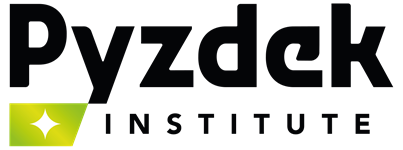If we hope to prosper and grow at business, in stature, morale, wealth and happiness, we begin by recognizing the need for changes. Lean Six Sigma combines the methodology for improvements of Lean, and the principles of Six Sigma to impart lessons and applicable concepts that can help us achieve these improvements in business and life and eliminate that which is holding us back.
A keyword in word in this methodology, that can help encapsulate these concepts is: “Kaizen.” This Japanese word literary means a change for the better. Far more than a Lean tool, it’s a key philosophy of Lean Six Sigma. Kaizen is a mindset and a way of thinking that challenges that which is traditional. It centers on not letting a day go by without making a small improvement. the true spirit of kaizen is to work with a slow and steady purpose instead on seeking the quick and reckless path.
Understanding what it takes to achieve kaizen takes daily application. We have boiled down some of the grand lessons derived from kaizen principles into Ten Principles for Improvement:
- First: Keep an open mind. Change cannot occur if we shut out the potential of new ideas and revelations.
- Second: Think, ‘Yes we can.’ With an open mind, you’ll be able to find the answers for improvement.
- Third: Never attack people. Focus your attention on solving the problem. Systems inherently create the problem, not people. Find the solution by fixing the system.
- Four: Always seek simple solutions.
- Fifth: Stop and fix problems that arise. Small problems can grown and eventually cause havoc if not attended to right away.
- Sixth: Use creativity instead of capital. The human mind is a powerful tool, apply it before you throw money at a problem.
- Seventh: Problems are Opportunities. Confronting a problem is an opportunity to create lasting change.
- Eighth: Ask ‘WHY?’ Instead of Who? Simply asking why at least 5 times may be the best teaching concepts Taiichi Ohno, one of the chief architects of the Toyota Production Systems, every used.
- Ninth: The wisdom of many is far better than the knowledge of just one. For instance, a doctor working alone cannot cure all the people suffering of Ebola. Some problems require a collaborative effort for resolution and improvement.
- Tenth: There is actually no final destination on the improvement journey. The ideal process inspires us to make those small changes on a daily basis, that lead to the bigger improvements that can positively affect us for our lifetime.
These ten principles are proven concepts for those of us bold enough who want to challenge the excuses and burdens that are keeping us from progressing. To make things better we can apply the ideals of kaizen not only in our careers and businesses but also our daily lives.

Leave a Reply